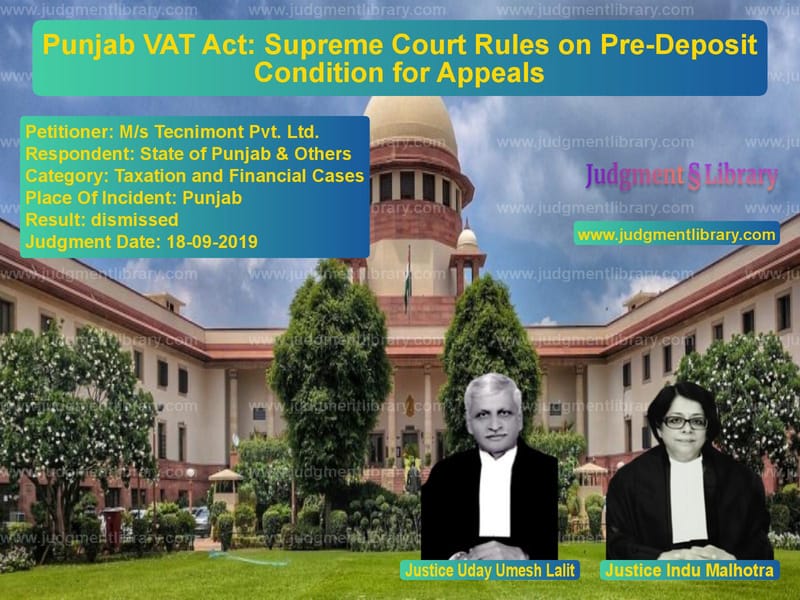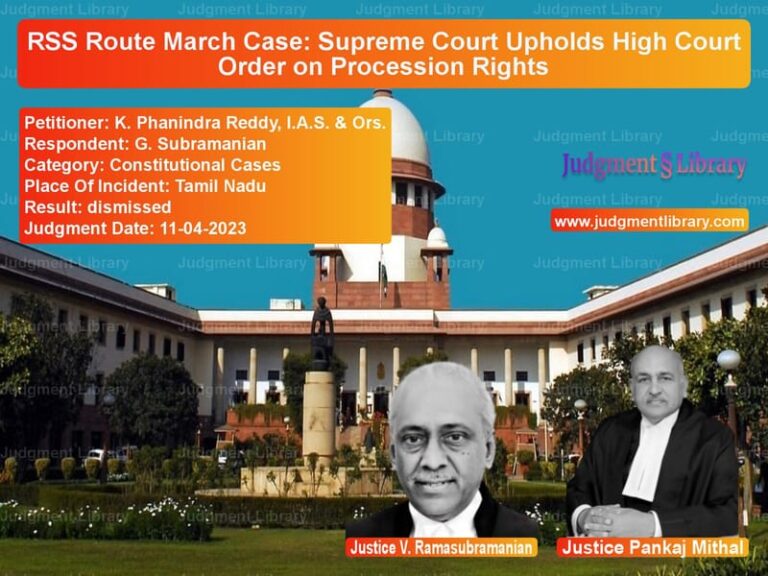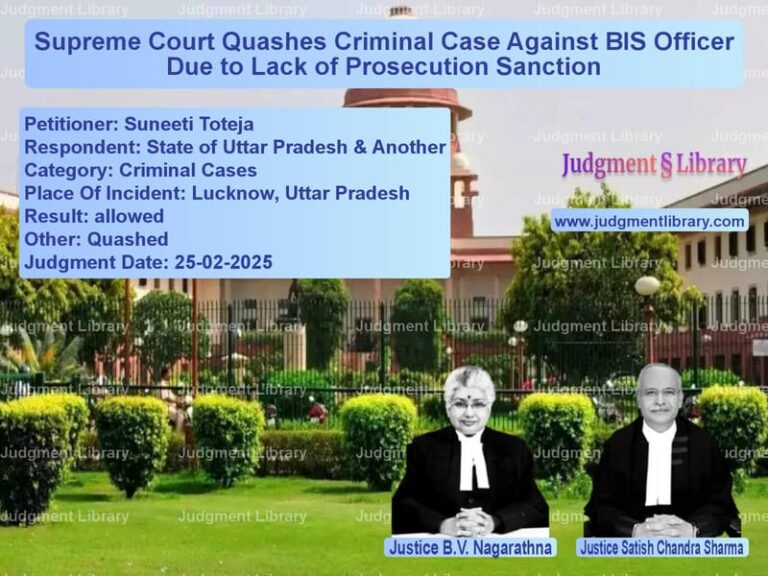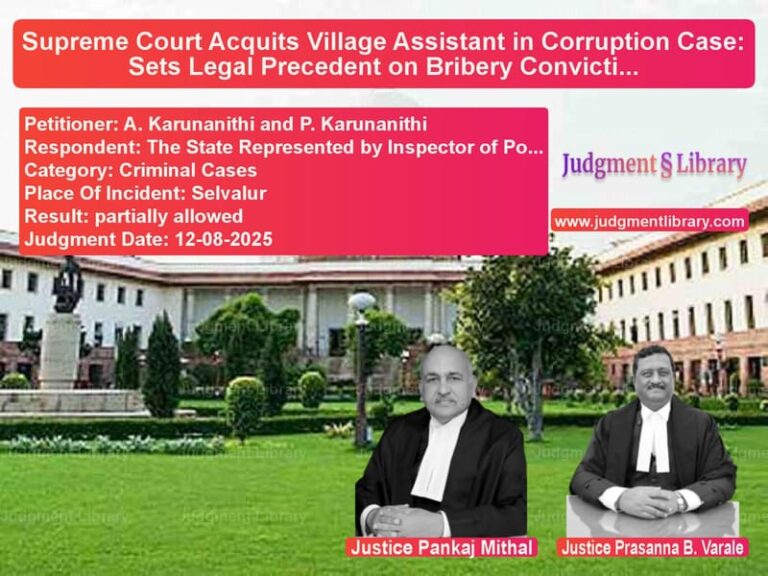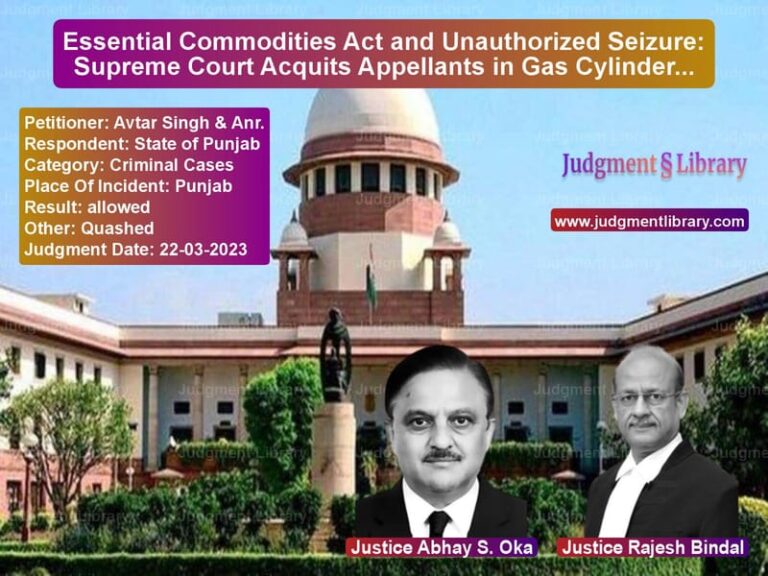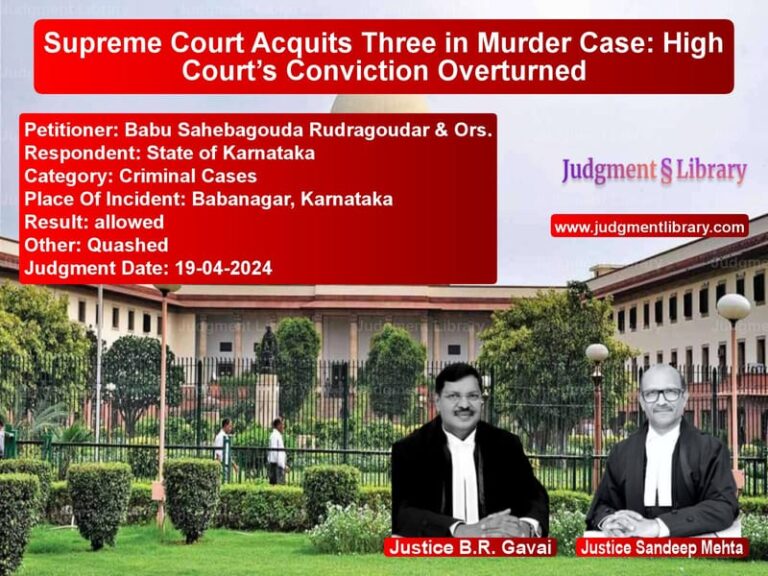Punjab VAT Act: Supreme Court Rules on Pre-Deposit Condition for Appeals
The Supreme Court of India recently delivered a crucial judgment addressing the constitutional validity of Section 62(5) of the Punjab Value Added Tax Act, 2005 (PVAT Act), which mandates a pre-deposit of 25% of the additional tax demand before an appeal can be entertained. The ruling came in response to multiple appeals, including the case of M/s Tecnimont Pvt. Ltd. v. State of Punjab & Others, challenging the Punjab and Haryana High Court’s decision that upheld the validity of the provision.
The key issue in this case revolved around whether the mandatory pre-deposit condition violates Article 14 of the Indian Constitution by imposing an unreasonable burden on taxpayers.
Background of the Case
The dispute arose when multiple businesses, including Tecnimont Pvt. Ltd., were assessed under the Punjab VAT Act, resulting in additional tax demands, penalties, and interest. The appellants challenged the assessment orders before the appellate authority but were required to deposit 25% of the disputed amount as a precondition for their appeals to be entertained. This requirement led to legal challenges, culminating in the High Court’s ruling that upheld the pre-deposit condition as constitutional.
Arguments of the Appellants
The appellants, represented by their legal counsel, raised the following key arguments:
- The requirement of a 25% pre-deposit was harsh, unreasonable, and violated the right to access justice under Article 14 of the Constitution.
- Many businesses could not afford to deposit such a large sum before filing an appeal, effectively denying them the right to contest unfair tax assessments.
- Unlike other tax laws that allow appellate authorities to grant relief in cases of financial hardship, the PVAT Act did not provide any discretion to waive or reduce the pre-deposit.
- Taxpayers were forced to pay a portion of a disputed tax demand before their case could be heard, which placed an undue financial burden on businesses already struggling with unjustified tax assessments.
- The absence of any provision allowing the appellate authority to waive or modify the pre-deposit requirement made the provision excessively rigid and inequitable.
Arguments of the Respondents
The State of Punjab and other respondents defended the provision with the following arguments:
- The pre-deposit requirement ensured that only serious and genuine appeals were filed, preventing frivolous litigation aimed at delaying tax payments.
- The state had the authority to impose conditions on the right to appeal, and pre-deposit requirements had been upheld in various taxation laws.
- Taxpayers had alternative remedies available, such as approaching the High Court in exceptional cases where the pre-deposit condition caused extreme financial hardship.
- Several Supreme Court judgments had previously upheld the legality of pre-deposit conditions in tax laws as reasonable and necessary for ensuring tax compliance.
Supreme Court’s Analysis
The Supreme Court carefully examined the legal and constitutional aspects of the case. The key observations of the Court were as follows:
- The right to appeal is a statutory right, and the legislature is within its powers to impose conditions for exercising that right.
- The purpose of the pre-deposit requirement is to strike a balance between taxpayers’ rights and the state’s interest in preventing revenue leakage.
- Pre-deposit conditions are commonly found in taxation laws and have been upheld by courts in multiple cases, provided they are not excessively onerous.
- Unlike some other tax laws that allow discretionary relief from pre-deposit conditions, the PVAT Act did not provide such discretion to appellate authorities. However, this alone did not make the provision unconstitutional.
- The remedy of filing a writ petition before the High Court remained available in cases where extreme financial hardship made compliance with the pre-deposit requirement impracticable.
The Supreme Court referred to its past rulings, including The Anant Mills Co. Ltd. v. State of Gujarat, where it upheld pre-deposit conditions in tax appeals, provided they served a legitimate state interest and were not arbitrary.
Final Judgment
The Supreme Court upheld the Punjab and Haryana High Court’s ruling that the 25% pre-deposit condition under Section 62(5) of the PVAT Act was valid. The Court concluded:
“The right to appeal is a statutory right, and the legislature has the authority to impose conditions for its exercise. The pre-deposit requirement under Section 62(5) of the PVAT Act is a valid regulation aimed at preventing frivolous appeals and ensuring tax compliance.”
However, the Supreme Court overruled the High Court’s view that the appellate authority had inherent discretionary powers to grant relief from the pre-deposit condition. The Court held that the provision must be strictly followed and that taxpayers seeking relief must approach the High Court under Article 226 in cases of extreme hardship.
This ruling has significant implications for businesses operating in Punjab, as they must ensure compliance with the pre-deposit requirement before filing tax appeals. The judgment reinforces the principle that legislative conditions on appeals must be reasonable but can be imposed to ensure effective tax administration.
Petitioner Name: M/s Tecnimont Pvt. Ltd..Respondent Name: State of Punjab & Others.Judgment By: Justice Uday Umesh Lalit, Justice Indu Malhotra.Place Of Incident: Punjab.Judgment Date: 18-09-2019.
Don’t miss out on the full details! Download the complete judgment in PDF format below and gain valuable insights instantly!
Download Judgment: Ms Tecnimont Pvt. L vs State of Punjab & Ot Supreme Court of India Judgment Dated 18-09-2019.pdf
Direct Downlaod Judgment: Direct downlaod this Judgment
See all petitions in Tax Refund Disputes
See all petitions in Banking Regulations
See all petitions in Judgment by Uday Umesh Lalit
See all petitions in Judgment by Indu Malhotra
See all petitions in dismissed
See all petitions in supreme court of India judgments September 2019
See all petitions in 2019 judgments
See all posts in Taxation and Financial Cases Category
See all allowed petitions in Taxation and Financial Cases Category
See all Dismissed petitions in Taxation and Financial Cases Category
See all partially allowed petitions in Taxation and Financial Cases Category

